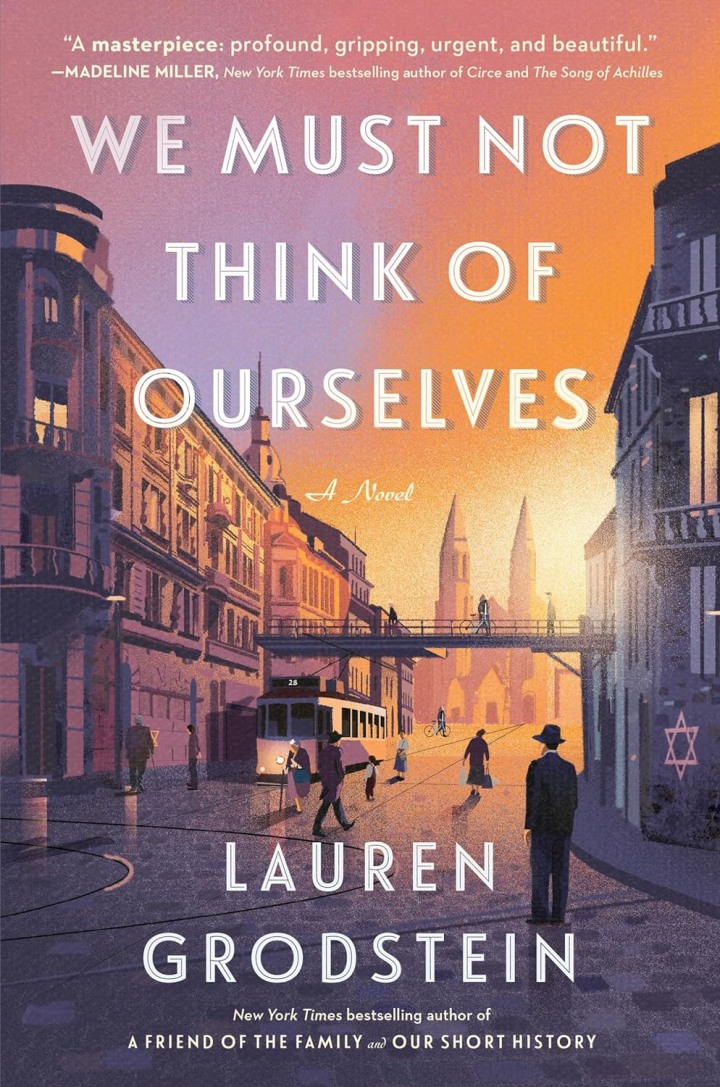Read With Jenna's final pick of 2023 is a historical novel Jenna Bush Hager calls "moving."
"I read this book about a year ago and it took my breath away. It is a little piece of history," Jenna says.
"We Must Not Think of Ourselves" by Lauren Grodstein is set in the Warsaw Ghetto during WWII, a region of the city Jews were forced to relocate in 1940. The Warsaw Ghetto was the largest of the Nazis' ghettoes in Europe, where Jews were segregated and lived in terrible conditions, replete with overcrowding and starvation.
The book follows "an archivist who was writing the stories of people living in the Warsaw Ghetto during World War II so that their stories would not be lost," Jenna says.
"It is a book about love and resilience, about hope, even in the darkest moments. It’s timely and powerful, and it proves that even in the darkest corners, love still remains."
This is Grodstein‘s sixth book, but her first historical novel. Grodstein tells TODAY.com she was inspired to write the book after taking a family trip to Poland, where her family lived before emigrating to the U.S. in the early 1900s.
Nearly half a million Jews lived in the Warsaw Ghetto starting in 1940. The Nazis began deporting Jews from the Warsaw Ghetto to the Treblinka death camp in 1942, where 300,000 former deportees were killed. In 1943, members of underground resistance groups staged a monthlong uprising. The Germans burned the ghetto down in retaliation, crushing the uprising and destroying the ghetto.
“We Must Not Think of Ourselves” by Lauren Grodstein
"I said to my sister, like, 'There are thousand novels in that room.' And my sister said, 'Well, you should try writing one,'" Grodstein says.
At first she was resistant. "I was like, I’m not writing about the Holocaust. That’s for someone who’s more equipped than me. I’m not doing it," she says.
That changed during the pandemic, when she got a "tiny window" into what it felt like to be "trapped and scared."
"I just wrote a page. If this page feels OK, I'll keep going. I did in part because I was really intrigued by the story and in part because I needed a project. My sourdough sucked," she said.
After thinking about the book for a year, she completed the novel beginning to end in a matter of months. The book follows Adam Paskow, a Jewish widower forced to relocate to the Warsaw Ghetto, who is tapped by the archivists to join their efforts. Adam lives in a crowded space with strangers, and ends up developing a connection with a mother trying to keep her family safe.
Grodstein says while writing she was reminded of her Jewish ancestors, who felt "haunted" by their relatives and friends who were killed during WWII.
"They weren't haunted because they were killed. They were haunted because of who (their relatives) were. They were people that they loved. I really was interested in just trying to revive a few people," Grodstein says.
While reading, Grodstein hopes readers keep the following questions in mind.
"What does it mean to be brave? Is Adam brave? Or is he just an ordinary guy, doing the best he can? Does war take away questions of right and wrong? Do you have any excuse to do what it takes to survive in war? Or do you still have to adhere to basic decency that you would have adhered to outside of war? Those are the questions I thought about a lot."

